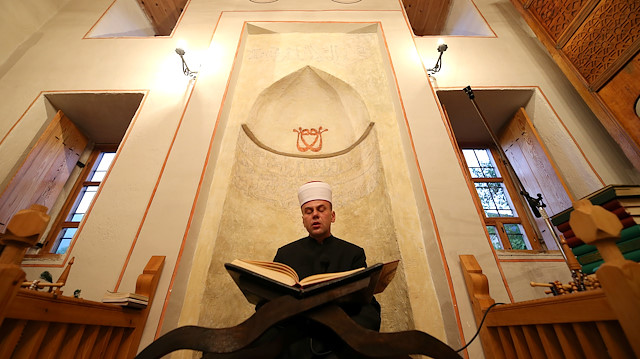
Leading Macedonian origin academic says a strong Turkey is not only important for Balkans, but for whole Muslim world
Turkey echoes a special place in the hearts of Muslims residing in the Balkan region, comprising nearly a dozen countries on the southeastern edge of the European continent, stretching from the shores of Adriatic Sea to Moldova, says Rahman Ademi, an acclaimed academic from Macedonia.
“In fact, people in Balkan countries switch over to Turkish media to listen prayers, despite not knowing the language,” he told Anadolu Agency.
Ademi left his homeland 30 years ago to pursue higher education in Turkey. He had come with a group of students to visit Istanbul in 1987.
“It was the first time I saw Istanbul. I was mesmerized and still remember the emotional touch this trip generated,” he said.
Graduating from the Theology Department of Ankara University in 1989, Ademi’s period of stay in Turkey saw political upheavals back in his region, including the disintegration of Yugoslavia.
He recalls the helping hand, Turkey extended to the Bosnian Muslims and others.
Despite upheavals back in his homeland, his stay in Turkey came a boon for Bosnia and Herzegovina. He served as a translator for Aliya Izetbegovic, the first president of Bosnia Herzegovina during his visits to Ankara.
Macedonian academic says that a strong and a stable Turkey was not only important for the Balkans, but for the entire Muslim world.
He said the 2016 defeated coup was an attempt to undermine Turkey’s stature and position. “The defeated coup attempt is itself an evidence of this argument,” he said.
Ademi recalled words of a tense Palestinian friend, who was monitoring developments that night. “The Palestinian was worried about his fate and millions of Syrians, Uighurs, Iraqis, and Afghans etc., who had taken refuge in Turkey,” he said.
The academic lamented that following the collapse of the Ottoman Empire, Muslims in the Balkan countries faced an uncertain future. In order to attack the Ottoman legacy, these countries took revenge on Muslims.
“Due to this [revenge-based attitude], we were pushed to margins and lived in a suffocated climate. On the other hand, Turkey presented a model of free environment. There was no comparison,” he said.
Hello, the comments you share on our site are a valuable resource for other users. Please respect other users and different opinions. Do not use rude, offensive, derogatory, or discriminatory language.
The floor is all yours.








